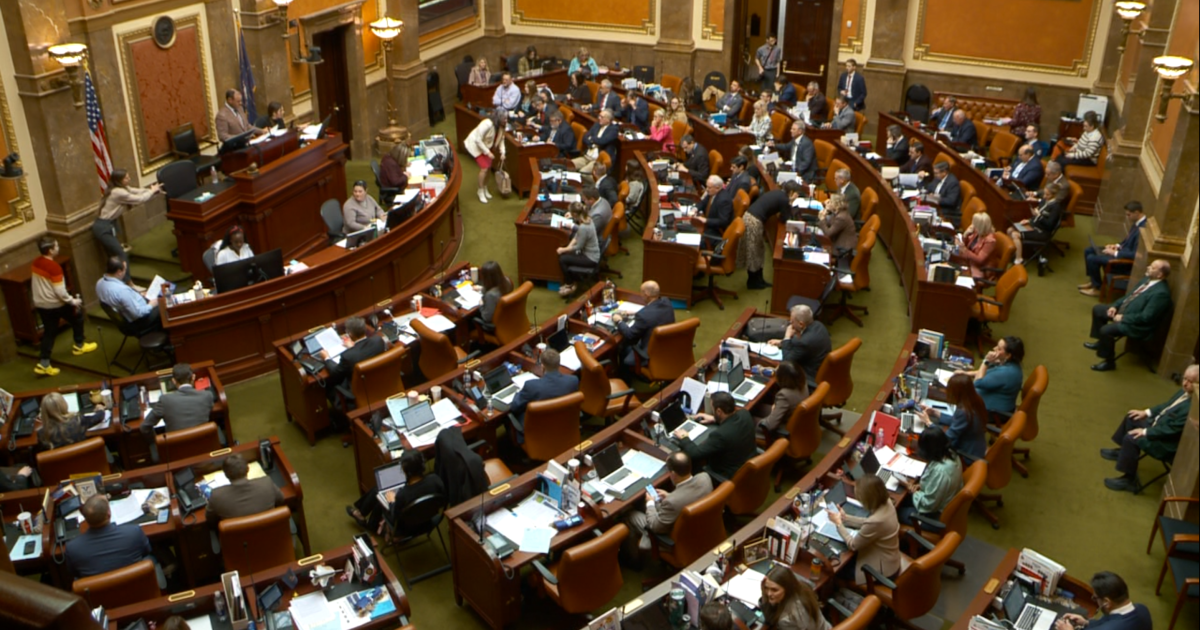
SALT LAKE CITY — After vigorous debate, the Utah House of Representatives passed a pair of controversial bills on diversity, equity and inclusion and transgender restroom access.
“This bill is focused on removing barriers for all students and all Utahns to overcome adversity through hard work, initiative and talent,” said Rep. Katy Hall, R-South Ogden, the sponsor of House Bill 261.
The bill would ban so-called diversity statements in job applications and hiring in state government. It also prohibits mandatory trainings “that promote political ideologies,” she said. It would replace Diversity, Equity and Inclusion offices at Utah colleges and universities with new “Student Success Centers” focused on all students.
Rep. Hall said her bill would not impact scholarships, student organizations on campus or other outreach efforts. Colleges would not lose federal money. They just can’t use the term “DEI.” Rep. Hall insisted her legislation was more inclusive by promoting academic freedom and equal opportunity instead of elevating some above others.
“The work of ending racism is extremely important to all of us,” said Rep. Tyler Clancy, R-Provo, speaking in support of the bill.
But Democrats in the House questioned if there’s actual data to show any problems with DEI initiatives. Some lawmakers in the minority party said they personally benefited from DEI and it helped them succeed in life.
“For me? I’m afraid that we’re erasing people. We’re erasing identities. We’re erasing experiences,” said House Minority Leader Angela Romero, D-Salt Lake City.
The bill passed 58-14 and now heads to the Senate where it will have its first committee hearing on Monday.
The House then took up House Bill 257, which would limit public restroom and locker room use to sex designated at birth, unless someone has fully transitioned with gender affirmation surgery and a birth certificate modification.
Rep. Kera Birkeland, R-Morgan, said her bill also creates more private, unisex spaces in public facilities.
“This doesn’t target any one specific group. It creates privacy for all Utahns,” she insisted.
But Rep. Birkeland faced pushback from Democrats on the floor. Rep. Sahara Hayes, D-Millcreek, said that while she likes parts of the bill including more unisex spaces and even a provision that gives girls athletics teams better access to better facilities, she worried the bill targets trans people.
“A major and core part of this legislation is how it goes about regulating and restricting trans people’s ability to exist in public spaces in our society,” Rep. Hayes said.
But Republicans in the House defended the legislation, sharing stories of people who felt uncomfortable in a restroom or locker room setting.
“Their feelings and and opinions need to be valued and respected and I think they are,” said Rep. Walt Brooks, R-St. George, referencing transgender people. “The thing we’re forgetting is people on the other side? Their feelings need to be valued and respected as well.”
Rep. Birkeland said she has tried to craft legislation that strikes a balance. She pointed out that national conservative organizations didn’t support her bill because they felt it was too friendly toward LGBTQ people.
“Please support something that sends a message to the rest of the nation that Utah knows how to be compassionate, but Utah knows where to draw the line,” Rep. Birkeland told her House colleagues.
HB257 passed with three Republicans joining Democrats in opposition. It now goes to the Senate.
Outside the House chamber, the LGBTQ rights group Equality Utah said it still had concerns with the bill and said there may be legal issues with it.
Sue Robbins, a transgender woman who serves on Equality Utah’s Transgender Advisory Council, said she feared the bill would lead to further problems when people seek to use public restrooms, regardless of their gender identity.
“People are going to challenge each other based what they view their femininity and their masculinity is,” she told FOX 13 News. “We are creating a mechanism where we’re having citizens challenge each other based on perceived issues that don’t actually exist.”



